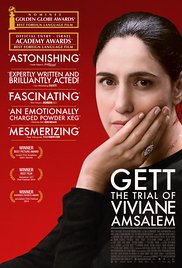Details
In the movie Gett: The Trial of Viviane Amsalem (2014), viewers are transported to Israel, where civil marriage and divorce do not exist. Instead, rabbis have exclusive authority over legitimizing marriages and dissolutions. Viviane Amsalem has spent three long years seeking a divorce, but her husband, Elisha, refuses to grant her consent. This power imbalance becomes increasingly evident as Elisha's cold resolve clashes with Viviane's determination to fight for her freedom.
Throughout the film, the judges' ambiguous role adds to the complex dynamics of the trial. Tragedy and absurdity intertwine as the legal procedure unfolds, bringing everything and everyone under scrutiny, except for Viviane's original plea for divorce. As the film explores the intricacies of a biased system, it raises questions about the limits of personal autonomy and the inequality of power between genders.
Gett: The Trial of Viviane Amsalem is a riveting examination of a woman's struggle for independence and the larger societal structures that hinder her ability to obtain it. With its thought-provoking narrative and powerful performances, this film sheds light on the legal and social obstacles faced by women in Israel. Delving into themes of frustration, perseverance, and the pursuit of justice, Gett: The Trial of Viviane Amsalem offers a compelling portrayal of one woman's fight for her fundamental rights.

